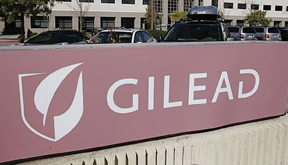Sovaldi’s first-quarter US sales of $2.1 billion, reported yesterday by Gilead, makes the debut of the hepatitis C antiviral the fastest drug launch ever. The company also said it’s working to address payer backlash over the drug’s price, through pharmaco-economic research.
To put the sales tally in perspective, Sovaldi, in just its first three months on the market, had more than double Lipitor’s first year of global sales of $856 million in 1997 (or $1.2 billion when adjusted for inflation), and has already trounced the previous record holder, Vertex’s hep. C drug Incivek. Launched in 2011, Incivek saw revenue of $1.56 billion in its first four quarters on the market. In its first quarter alone, Sovaldi has eclipsed the first year’s worth of Incivek sales by more than $500 million.
Sovaldi may not have even hit full stride yet, either. Gilead EVP of Operations Paul Carter noted, during an earnings call yesterday, that “only half of the physicians visited by our therapeutic specialists have prescribed Sovaldi to date. This leaves us optimistic about the opportunity that lies ahead…With an estimated 1.7 million diagnosed patients in the US and around 400,000 under treated care, we have to take just a small fraction of those who can benefit from treatments in the future…”
Beyond Solvadi’s short-term value (it all but cures the virus in 12 weeks), and its place among historical launches, critics have been vocal in questioning the treatment’s long-term value, and whether Gilead and other drugmakers will have the ability to maintain this level of pricing going forward.
The conversation steered quickly in that direction yesterday evening on the company’s earnings call, with a question from JPMorgan analyst Geoffrey Meacham, who asked, “There’s been a lot of payer noise…are there any sort of pharmaco-economic studies that you guys are doing? Or, just help us a little in how to deal with a lot of headlines that we’ve been seeing almost every day from commercial and government payers.”
Gilead President and COO John Milligan responded that this is a conversation that healthcare stakeholders need to have, and that he thinks “the value of a cure [is] underestimated in terms of the overall advantage to the healthcare system….HCV costs a lot of money…These will be difficult conversations, but important ones for doctors and [the] payer community and public health officials to undertake.”
Norbert Bischofberger, Gilead EVP of R&D, chimed in that the value is also broader than HCV alone. “The value goes beyond just treating hepatitis C…Curing somebody…has benefits that go beyond the liver. It’s recognized now that hepatitis C is a chronic inflammatory condition that leads to more diabetes, more heart disease, more CNS…you could reasonably argue that curing somebody of their hepatitis C infection has collateral benefits that go beyond the liver.”
He added that Gilead is working to fit these ideas together into a “bigger pharmaco-economic argument,” but affirmed that he does not believe “it’s medically necessary to prioritize and restrict the cure of hepatitis C. It may be necessary economically and that’s what we’re going to address.”
Gilead will also have to address its competition. AbbVie filed an NDA for its HCV combo yesterday, and Merck’s asset, which received bright marks in its phase-II trial, may further split up the pie.








